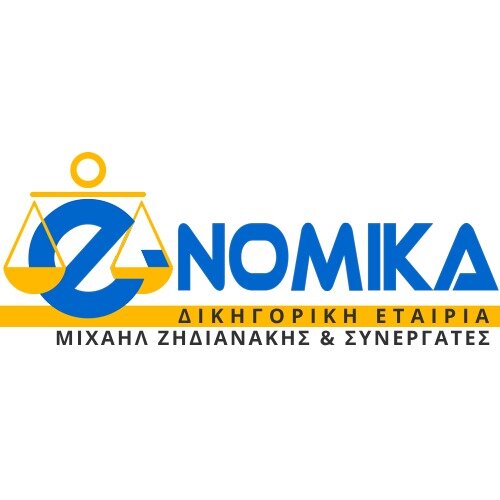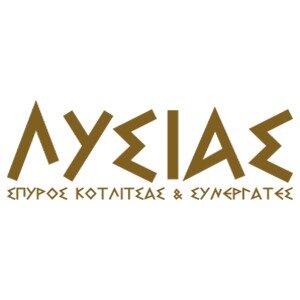Best Trusts Lawyers in Greece
Share your needs with us, get contacted by law firms.
Free. Takes 2 min.
Or refine your search by selecting a city:
List of the best lawyers in Greece
About Trusts Law in Greece
Trusts, as known in common law jurisdictions, do not have a direct equivalent in the civil law system of Greece. However, certain similar arrangements can be established under Greek law, such as usufructs, foundations, and specific contractual arrangements. Trusts in Greece are likely to be governed by international or cross-border arrangements, especially when they involve parties or interests from jurisdictions where trusts are recognized. Understanding how such arrangements interact with Greek law requires specialized knowledge, often necessitating the aid of a legal expert.
Why You May Need a Lawyer
Individuals or entities may require legal assistance with trusts in the following situations:
- Inheritance Planning: To manage and organize inheritance effectively using Greek-recognized arrangements.
- Cross-border Estates: If you have assets in Greece and live abroad or vice versa.
- Asset Protection: Structuring assets to protect against creditors and ensure privacy.
- Foundation Establishment: To set up a foundation for philanthropic activities within the legal framework.
- Dispute Resolution: Resolving conflicts regarding the interpretation or execution of trust-like structures.
Local Laws Overview
There are several key aspects of local laws pertinent to trust-like arrangements in Greece:
- Usufructs: Legal arrangements allowing one person to use and derive benefit from another's property without owning it.
- Foundations: Public benefit foundations are regulated extensively under Greek law, often involving detailed compliance requirements.
- Tax Implications: Any arrangement needs to consider Greek tax law, impacting both the arrangement and beneficiaries.
- International Treaties: Double taxation and other treaties may impact cross-border considerations.
Frequently Asked Questions
What is the equivalent of a trust in Greece?
Greece does not recognize trusts as they exist in common law systems. Instead, similar purposes can be achieved through usufructs or foundations.
Can a foreign trust be recognized in Greece?
Foreign trusts can be recognized in Greece, but they need to comply with local laws related to property and inheritance.
What types of assets can be included in trust-like structures in Greece?
Real estate, financial assets, and business interests are common types of assets that can be managed under Greek-style legal ownership arrangements.
Are there inheritance taxes on trusts or similar arrangements in Greece?
Yes, inheritance and gift taxes may apply, depending on the specific circumstances and the nature of the arrangement.
How does Greek taxation affect foreign grants or trusts?
Greece may tax foreign grants if they have beneficiaries or properties within its jurisdiction; international tax treaties can influence this.
What legal documentation is necessary to establish a foundation in Greece?
Statutes of the foundation, registration with the relevant authority, and compliance with specific regulatory guidelines are necessary.
Are trusts used for privacy purposes recognized in Greece?
While privacy is a feature of many trust agreements, full privacy cannot be guaranteed under Greek regulations, which may require disclosure of information.
Who is responsible for managing an estate under a usufruct arrangement?
The usufructuary holds responsibility for maintaining and benefiting from the estate, while the owner retains the property title.
Can trusts be used to avoid creditors in Greece?
While protecting assets is a common purpose of trusts internationally, specific legal guidance is necessary to ensure compliance with Greek laws.
What is the process for resolving disputes over international trusts affecting Greek assets?
Legal resolution may involve courts in Greece and other jurisdictions, requiring expertise in international law and applicable treaties.
Additional Resources
Consider reaching out to the following resources for expert advice and assistance regarding trusts in Greece:
- Greek Bar Associations: They can refer experienced lawyers specializing in trust-like arrangements.
- Embassies and Consulates: Offering support for expatriates dealing with cross-border legal issues.
- International Financial Advisories: Firms with experience in managing international estates involving Greece.
- Greek Ministry of Finance: For guidance regarding taxation and compliance with Greek law.
Next Steps
If you need legal assistance with trusts or trust-like arrangements in Greece, here are recommended steps:
- Identify Your Needs: Determine the specific nature of your needs (e.g., inheritance planning, asset protection).
- Consult Experts: Contact a legal expert with experience in Greek and international property laws.
- Gather Documentation: Prepare all related documents, including assets list, legal documents, and tax records.
- Engage with Greek Authorities: Register any relevant arrangements with the necessary Greek governmental bodies.
- Regular Review: Periodically review your arrangements with your legal advisor to remain compliant and effective.
Lawzana helps you find the best lawyers and law firms in Greece through a curated and pre-screened list of qualified legal professionals. Our platform offers rankings and detailed profiles of attorneys and law firms, allowing you to compare based on practice areas, including Trusts, experience, and client feedback.
Each profile includes a description of the firm's areas of practice, client reviews, team members and partners, year of establishment, spoken languages, office locations, contact information, social media presence, and any published articles or resources. Most firms on our platform speak English and are experienced in both local and international legal matters.
Get a quote from top-rated law firms in Greece — quickly, securely, and without unnecessary hassle.
Disclaimer:
The information provided on this page is for general informational purposes only and does not constitute legal advice. While we strive to ensure the accuracy and relevance of the content, legal information may change over time, and interpretations of the law can vary. You should always consult with a qualified legal professional for advice specific to your situation.
We disclaim all liability for actions taken or not taken based on the content of this page. If you believe any information is incorrect or outdated, please contact us, and we will review and update it where appropriate.
Browse trusts law firms by city in Greece
Refine your search by selecting a city.
















